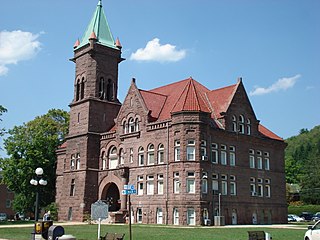
Barbour County is a county in north-central West Virginia, US. At the 2020 census, the population was 15,465. The county seat is Philippi, which was chartered in 1844. Both county and city were named for Philip P. Barbour (1783–1841), a U.S. Congressman from Virginia and Associate Justice of the U.S. Supreme Court. The county was formed in 1843 when the region was still part of the state of Virginia. In 1871, a small part of Barbour County was transferred to Tucker County, West Virginia.

Scouting in West Virginia has a long history, from the 1910s to the present day, serving thousands of youth in programs that suit the environment in which they live.

James Barbour was an American slave owner, lawyer, politician and planter. He served as a delegate from Orange County, Virginia in the Virginia General Assembly, and as speaker of the Virginia House of Delegates. He was the 18th Governor of Virginia and the first Governor to reside in the current Virginia Governor's Mansion. After the War of 1812, Barbour became a U.S. Senator and the United States Secretary of War (1825–1828).

The Tygart Valley River — also known as the Tygart River — is a principal tributary of the Monongahela River, approximately 135 miles (217 km) long, in east-central West Virginia in the United States. Via the Monongahela and Ohio rivers, it is part of the watershed of the Mississippi River, draining an area of 1,329 square miles (3,440 km2) in the Allegheny Mountains and the unglaciated portion of the Allegheny Plateau.
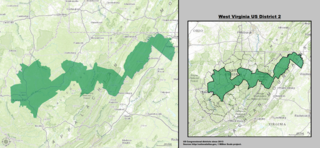
West Virginia's 2nd congressional district currently stretches from the Ohio River border with Ohio to the Potomac River border with Maryland and the border with Virginia. It includes the capital city of Charleston and the rapidly growing residential communities of West Virginia's Eastern Panhandle and Potomac Highlands regions connected by a narrow strip of nearly unpopulated counties. It is 20 miles (32 km) wide and 300 miles (480 km) long.
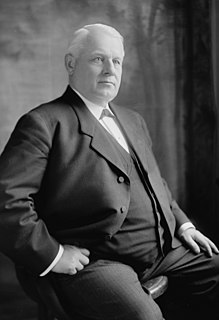
Thomas Staples Martin was an American lawyer and Democratic Party politician from Albemarle County, Virginia, who founded a political organization that held power in Virginia for decades and who personally became a U.S. Senator who served for nearly a quarter century and rose to become the Majority Leader before dying in office.

More than 1,500 African American officeholders served during the Reconstruction era (1865–1877) after passage of the Reconstruction Acts in 1867 and 1868 as well as in the years after Reconstruction before white supremacy, disenfranchisement, and the Democratic Party fully reasserted control in Southern states. Historian Canter Brown, Jr. noted that in some states, such as Florida, the highest number of African Americans were elected or appointed to offices after 1877 and the end of Reconstruction. The following is a partial list some of the most notable of the officeholders pre–1900.

Edward Theodore England was a lawyer and politician from West Virginia. He served in the West Virginia Senate, as Attorney General of West Virginia, and as a member of the United States House of Representatives.
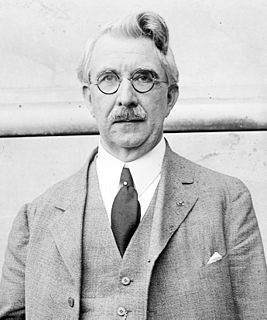
Stuart Felix Reed was an American lawyer and Republican politician who became the Secretary of State of West Virginia (1909–1917) and represented West Virginia's 3rd congressional district in the United States House of Representatives (1917–1925).
The following tables indicate the historic party affiliation of elected officials in the U.S. state of West Virginia, including: Governor, Secretary of State, Attorney General, State Auditor, State Treasurer, and State Agriculture Commissioner. The tables also indicate the historical party composition in the State Senate, State House of Delegates, State delegation to the U.S. Senate, and the State delegation to the U.S. House of Representatives For years in which a presidential election was held, the tables indicate which party's nominees received the state's electoral votes.
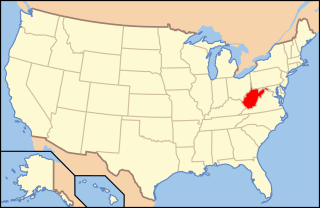
Lesbian, gay, bisexual, and transgender (LGBT) people in the U.S. state of West Virginia face legal challenges not faced by non-LGBT persons. Same-sex sexual activity has been legal since 1976, and same-sex marriage has been recognized since October 2014. West Virginia statutes do not address discrimination on account of sexual orientation or gender identity; however, the U.S. Supreme Court's ruling in Bostock v. Clayton County established that employment discrimination against LGBT people is illegal.

The 2014 United States Senate election in West Virginia was held on November 4, 2014, to elect a member of the United States Senate to represent the State of West Virginia, concurrently with other elections to the United States Senate in other states and elections to the United States House of Representatives and various state and local elections.

Samuel Lightfoot Flournoy was an American lawyer, politician, and businessperson in the U.S. state of West Virginia. Flournoy served as a state senator representing the 12th Senatorial District in the West Virginia Senate (1885–1890) and served three terms as mayor of Romney, West Virginia. Flournoy unsuccessfully ran as a candidate for the West Virginia Democratic Party gubernatorial nomination in 1900.

Donna Jean Boley is a Republican member of the West Virginia Senate representing the 3rd district. West Virginia Governor Arch A. Moore, Jr. appointed Boley on May 14, 1985 to fill a seat made vacant by the resignation of Sam White on April 24, 1985. Since her election to White's unexpired term in 1986, Boley has gone on to win re-election nine times. From 1990 to 1996, she was Senate Minority Leader. In 1991 and 1992, Boley was also the only Republican member in the 34-member Senate, making her the minority chairwoman for every single Senate committee.
Samuel Lightfoot Flournoy was an American lawyer and politician in the U.S. state of West Virginia. He was a prominent lawyer in Charleston, where he practiced law for over 50 years. Born in Romney in 1886, Flournoy was the son of West Virginia State Senator Samuel Lightfoot Flournoy. Flournoy was a grandson of Hampshire County Clerk of Court John Baker White and a nephew of West Virginia Attorney General Robert White and West Virginia Fish Commission President Christian Streit White. He was also a relative of Thomas Flournoy, United States Representative from Virginia.

The 2016 United States House of Representatives elections in West Virginia were held on November 8, 2016, to elect the three U.S. representatives from the state of West Virginia, one from each of the state's three congressional districts. The elections coincided with the 2016 U.S. presidential election, as well as other elections to the House of Representatives, elections to the United States Senate and various state and local elections.

The Virginia Constitutional Convention of 1829–1830 was a constitutional convention for the state of Virginia, held in Richmond from October 5, 1829 to January 15, 1830.
On June 20, 1863 the U.S. government created a new state from 50 western counties of Virginia to be named "West Virginia". This was done on behalf of a Unionist government in Wheeling, Virginia, approved by Congress and President Lincoln, though it was done with a low participation of the citizens within the new state. There remained a large number of counties and citizens who still considered themselves as part of Virginia and the Confederacy which, in turn, considered the new state as part of Virginia and the Confederacy. In 1861 the 50 counties contained a population of 355,544 whites, 2,782 freemen, 18,371 slaves, 79,515 voters and 67,721 men of military age. West Virginia was the 6th most contested state during the war, with 632 battles, engagements, actions and skirmishes.















